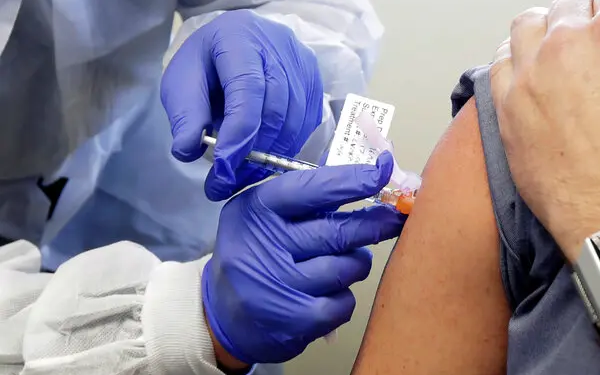Frequent administration of mRNA COVID-19 boosters may impair the immune system response in immune-compromised individuals, raising questions about whether giving multiple vaccine doses is more harmful than beneficial. A narrative review published in Clinical and Experimental Medicine highlights the potential risks associated with repeated COVID-19 vaccination, including an increased likelihood of SARS-CoV-2 infection and other pathologies. Furthermore, multiple doses may result in higher levels of IgG4 antibodies and impair the activation of white blood cells that protect the body from infections and cancer.
IgG4 antibodies, produced by specialized white blood cells called B cells, have a protective effect up to a certain level. However, abnormally high levels resulting from repeated vaccination may lead to IgG4-related diseases, such as multiorgan inflammation, autoimmune diseases, rapid-onset cancers, and autoimmune myocarditis. Scientist Alberto Boretti, the author of the review, questions the recommendation for booster doses, stating that it is not based on proven efficacy and neglects the potential side effects.
To assess the impact of mRNA vaccine boosters on the immune response of immunocompromised individuals, Boretti conducted a literature review. He found limited long-term studies evaluating the safety and efficacy of repeated booster vaccination, particularly considering the continuously evolving virus. Instead, evidence suggests that multiple mRNA vaccine boosters impair the activation of CD4+ and CD8+ T cells. These cells play a crucial role in protecting the body from pathogens and coordinating immune responses.
Impairment of CD4+ T cells can reduce antibody production and compromise the body's ability to mount an effective humoral immune response. This increases susceptibility to opportunistic infections caused by pathogens that typically do not cause disease in individuals with healthy immune systems. CD8+ T cells, on the other hand, are essential for cell-mediated immunity and eliminate infected or abnormal cells while preventing excessive inflammation. Impaired activation of CD8+ T cells allows infections or tumor growth to persist.
The potential harm of repeated vaccination may outweigh the benefit, yet immunocompromised individuals are currently the first group authorized to receive additional vaccine doses in the United States. Dr. Craig M. Wax, a physician and health care policy expert, argues that genetic intervention shots should be pulled from the market due to a lack of proven safety and efficacy. He highlights the failure of these shots to establish effectiveness and their potential contribution to morbidity and mortality.
Several studies support the notion that repeated doses of mRNA COVID-19 vaccines may impair immune response. A 2023 study published in Vaccines demonstrated that repeated vaccination increases IgG4 levels, weakening the immune system and potentially making individuals more susceptible to cancer. A Lancet study from February 2022 showed that vaccine efficacy progressively waned over time, with vaccinated individuals having lower immune function eight months after receiving their initial two doses compared to unvaccinated individuals.
Experts have also observed a puzzling rise in aggressive, rapid-onset cancers resistant to treatment following vaccination. One theory suggests that the shift of IgG4 caused by repeated mRNA vaccination creates a tolerance for spike protein and impairs the production of antibodies crucial for cancer surveillance.
The narrative review also highlights other factors that may negatively impact the immune system, including the persistence of spike protein, inflammatory lipid nanoparticles present in vaccines, unintended consequences of spike protein antibodies, and modifications in the genetic code.
Concerns arise from the exclusion of immunocompromised individuals from initial COVID-19 vaccine clinical trials, with only specific subgroups included in phase 3 trials. However, immunocompromised individuals were authorized as the first group to receive COVID-19 vaccine boosters. The current CDC guidance recommends updated vaccines for moderately or severely immunocompromised individuals who received their initial doses before September 12, 2023. However, no clinical trials have evaluated the safety and effects of multiple vaccine doses in this population.
Dr. Wax questions the motivation behind vaccinating immune-compromised individuals excessively, suggesting financial interests play a role. He believes that supporting the immune system and early treatment pose less risk than further suppressing immunity with additional vaccinations.
In conclusion, repeated mRNA COVID-19 vaccination may impair the immune response and raise concerns about the safety and efficacy of multiple vaccine doses. The potential risks associated with increased levels of IgG4 antibodies, impaired activation of T cells, and the exclusion of immunocompromised individuals from vaccine trials warrant further investigation. As the debate continues, it remains crucial to prioritize rigorous research on the effects of mRNA vaccine boosters on different populations, particularly those with compromised immune systems.







